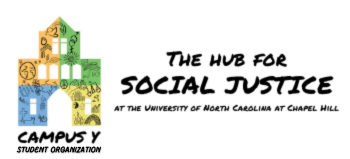Last Thursday, Greg Lukianoff, president of the Foundation for Individual Rights in Education (FIRE), visited UNC-Chapel Hill’s campus to discuss issues surrounding freedom of speech on college campuses. In his talk, he discussed how various college campuses are increasingly having speech codes for what is allowed to be said on campuses. In his talk, he gave examples of colleges/universities that are exhibiting relatively extreme speech codes- surprisingly, Lukianoff noted that UNC is one of the more freer universities who don’t have as many speech codes as other universities. FIRE puts universities in “speech code” rankings, that look like this:

What Lukianoff wanted to emphasize throughout his talk was the increasing obsession with monitoring what is being said (or not said) on college campuses. In the University of New Hampshire, for example, the words “elders/senior citizens”, “freshman”, “mailman”, “mothering/fathering”, “Arab”, and “American” are just some of the words that are prohibited from being said since they are triggering or bothersome to certain students. In UCLA, microaggressions there include “Where are you from or where were you born”, “America is a melting pot”, and“I believe the most qualified person should get a job.” This culture of watching what one says, according to Lukianoff, is damaging to college campuses. Rather than encouraging dialogue, it actually makes communication less likely and makes people retreat from conversation. Likewise, it makes people feel like they are walking on eggshells when they are speaking to anyone with a different opinion than their own, and therefore makes them only grow closer to people who have similar opinions rather than those with differing opinions. Banning offensive language or discouraging free speech on campus also doesn’t stop people from being, let’s say, racist or homophobic. Rather, it just keeps these thoughts in their heads and makes them conglomerate with people who think like them. Quoting Lukianoff, “If there was a Nazi in the room, I’d like to know.”
Lukianoff’s talk is one that is needed on campus. Freedom of speech on campus is what promotes the variety of events, programs, and resources available to students on a daily basis. This freedom of speech has allowed students to feel safe, welcomed, and considered when they come to UNC. When freedom of speech starts becoming “Only say what everyone else agrees with”, that is when thinking is hindered and this university begins to fail. Often times, the liberal bubble that UNC students are put in keep them thinking in ways that don’t encourage diverse or critical thinking, but actually just keep feeding them the same information that they already agree with. For a student to have a truly liberal arts education, they need to be exposed to all forms of comments, criticisms, arguments, theories, and ideas. However, there are respectful and thoughtful ways to have these types of discussions. This isn’t done by fear-mongering, insulting other opinions/people, or by presenting unfactual information. Freedom of speech, I’d like to believe, doesn’t mean slander or marginalizing another group of people since those conflict with morality. Lukianoff’s talk showed that there are ways to express different ideas and opinions in ways that are constructive rather than destructive to the campus.
https://www.thefire.org/about-us/staff/
